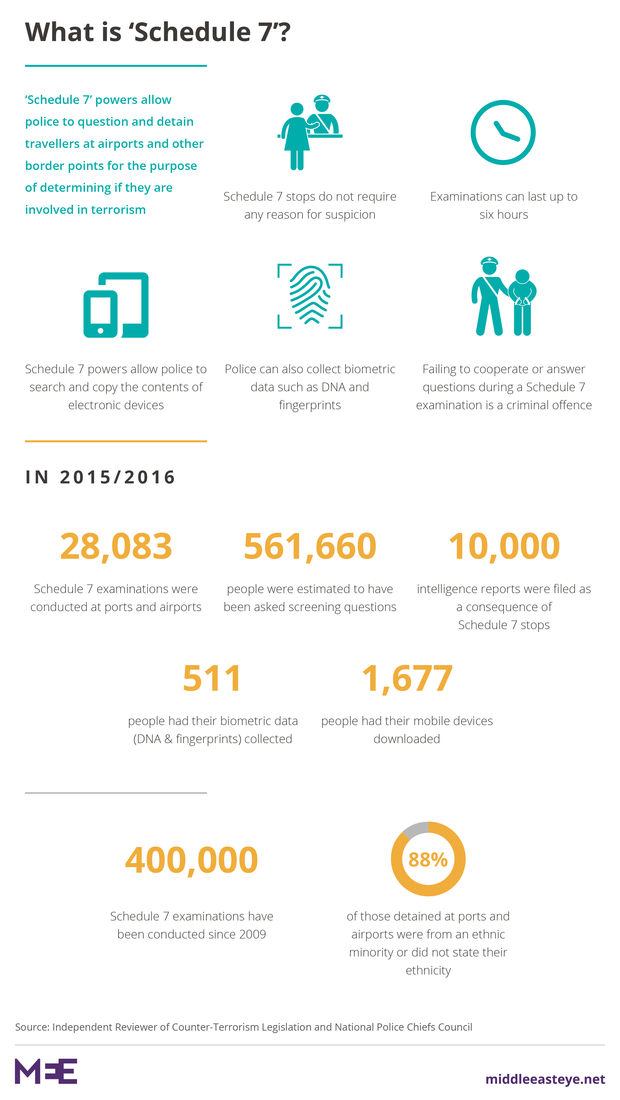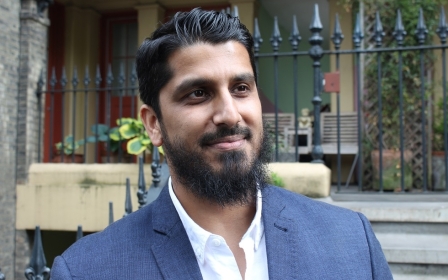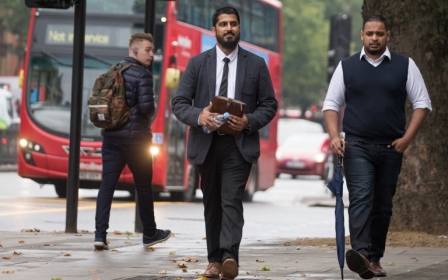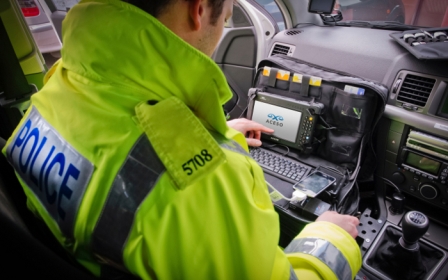Cage director challenges 'coercive' Schedule 7 powers in court appeal
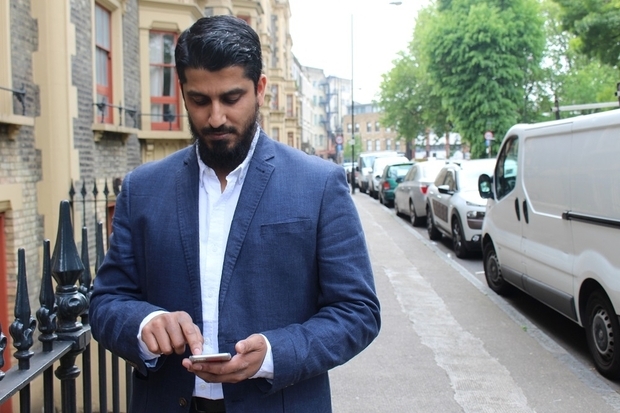
Counter-terrorism powers allowing travellers to be questioned and searched as they pass through British airports are “coercive and intrusive”, and require more safeguards to be put in place to prevent human rights abuses, the high court in London heard on Thursday.
The powers, commonly known as Schedule 7, are under scrutiny in an appeal brought by Muhammad Rabbani, the managing director of the campaign group Cage, who was convicted last September of obstructing a Schedule 7 stop after refusing to reveal passwords and PIN codes for his electronic devices.
Rabbani was stopped for questioning at London's Heathrow Airport in November 2016 after flying back to the UK from Doha, the capital of Qatar.
He subsequently said he had refused to give examining officers access to his devices because they contained sensitive information relating to the legal case of a man who alleged that he had been tortured while held in US custody.
Henry Blaxland, counsel for Rabbani, said that Schedule 7 powers violated article 8 of the European Convention of Human Rights guaranteeing a right to privacy.
He cited a ruling by the appeal court in 2016 in the case of David Miranda, a journalist stopped under Schedule 7 while carrying files relating to leaked documents obtained from whistleblower Edward Snowden, which led to reforms to how Schedule 7 operated to protect journalistic material.
Blaxland argued that the same safeguards should be extended to other forms of sensitive and confidential information, and cited the example of a doctor carrying the medical records of patients.
'Coercive and intrusive'
“The Schedule 7 power is a coercive and intrusive power which violates article 8 and requires safeguards to be in place,” Blaxland said.
Blaxland also cited the Schedule 7 Code of Practice which says that officers can copy electronic data but must “cease reviewing, and not copy, information for which they have reasonable grounds for believing is subject to legal privilege, is excluded material or special procedure material”.
But he said that an information leaflet given to people stopped under Schedule 7 did not clarify that any information they held in confidence was considered protected material and could not be examined.
Blaxland said that if Rabbani had been provided with that information at an earlier stage “it almost certainly would not have led to his arrest in this case".
Blaxland also challenged Rabbani's conviction on the grounds that he had not been stopped at random, as Schedule 7 powers are intended to be used, to ascertain whether he was a person engaged in terrorism.
Police officers told Westminster Magistrates' Court in September that Rabbani had been stopped based on specific information, and were aware that he worked for Cage, an advocacy organisation which campaigns to highlight civil liberties issues raised by counter-terrorism policies.
The court also heard that Rabbani had been formally interviewed under Schedule 7 counter-terrorism powers on seven occasions since 2008. On previous occasions police had taken fingerprints and DNA samples and downloaded the contents of a phone.
Blaxland said the prosection should have been made to adduce evidence as to the reason for stopping him, to enable the court to determine whether the powers had been used legally.
“It is our submission that there needs to be material before the court that allows the court itself to determine whether the decision has been taken lawfully,” he said.
"Further scrutiny may lead to the conclusion that the purpose of the stop was not consistent with the purpose of the act which is to determine if someone is a terrorist."
'They need to be careful'
Tom Little, counsel for the Director of Public Prosecutions, said that the Schedule 7 code of practice provided adequate safeguards already, and that examining officers should be trusted to consider sensitive material in accordance with the code.
He said it should be sufficient for prosecutors to show that an examining officer was carrying out his duties consistently with Schedule 7 powers and that it should not be necessary to disclose further information in a “non-random stop case”.
He also cited reports by the UK's Independent Reviewer of Terrorism Legislation which he said had concluded that the exercise of Schedule 7 powers was “effective and proportionate”.
“We need to trust these officers,” said Little. “They are entitled to look at devices but they are aware they need to be careful.”
Little also said that Rabbani had not told officers that he was carrying sensitive information at the time, but had rather refused to reveal his passwords based on an assertion of his own right to privacy.“The detaining officer was not dealing with somebody who knew nothing of Schedule 7,” he said.
“If Mr Rabbani had turned up with a lever-arch file relating to the person in Doha his case would have been straightforward.”
Lord Justice Irwin and Mr Justice Foskett reserved judgment in the case.
Speaking afterwards, Rabbani said he was prepared to take his appeal to the Supreme Court if necessary.
“The prosecution confirmed that my stop was not random, but they were unwilling to reveal the reasons for targeting me. This raises serious concerns about the way Schedule 7 powers can be exercised arbitrarily and disproportionately. This must not be allowed to continue.
“I am confident with my decision to refuse passwords and I am also confident that the courts will recognise my innocence.”
Critics of Schedule 7 powers argue that they are disproportionate and discriminatory against ethnic minorities and Muslims.
More than 28,000 people were subjected to Schedule 7 examinations in 2015-16 resulting in about 10,000 intelligence reports being filed, according to a report by the Independent Reviewer of Terrorism Legislation.
About 500,000 are also estimated to have been subjected to pre-examination screening questions in the same period.
The government earlier this year highlighted a "downward trend" in Schedule 7 examinations, with 16,349 people questioned in 2017 according to Home Office figures. The number subjected to pre-examination screening is unknown.
Cage last week published thousands of documents concerning the case of Ali al-Marri, a former "enemy combatant" held by the US between 2001 and 2015 who Rabbani now says he was protecting when he declined to reveal his passwords.
Middle East Eye propose une couverture et une analyse indépendantes et incomparables du Moyen-Orient, de l’Afrique du Nord et d’autres régions du monde. Pour en savoir plus sur la reprise de ce contenu et les frais qui s’appliquent, veuillez remplir ce formulaire [en anglais]. Pour en savoir plus sur MEE, cliquez ici [en anglais].


